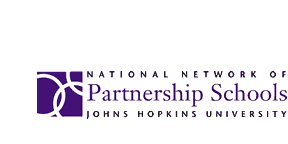Riverside, CA

Parent Liaison Certified Training
When parents are involved, students do better in school. This well-accepted mantra was the starting place for the Riverside County Office of Education (RCOE). Leaders for partnerships worked with the University of California-Riverside (UCR) to develop a comprehensive curriculum for Parent Liaison Certified Training (PLCT). The goal was to ensure that Parent Liaisons are well prepared to conduct leadership roles in district and school programs of family and community engagement.
PLCT provides classes, resources, and on-going support to help Parent Liaisons conduct research-based approaches of parent and family engagement at the district and school levels. In California since 2013, the state’s Local Control Funding Formula (LCFF) provides districts and schools with resources for school improvement. Educators are held accountable for students’ academic performance and improvement. Districts must have a Local Control and Accountability Plan (LCAP), which identifies goals, services, and actions for all students. This includes district and school programs of family and community engagement.
PLCT grew from RCOE’s PELI program, based on the NNPS Framework of Six Types of Involvement, Action Teams for Partnerships, and Action Plans for Family and Community Engagement. The course is publicized on the RCOE website, at PELI meetings, trainings, and by UCR. Two main topics are covered in PLCT classes over four months: (1) Leadership Enhancement for School, Family, and Community Partnerships, and (2) Connecting the Pieces. Each topic includes two classes on “the basics” of family engagement, research-based strategies, and an overview of state and federal policies and requirements for parent and family engagement.
Parent Liaison Certified Training (PLCT) is featured in Promising Partnership Practices 2019.
African-American Parent Advisory Council
“What gets measured gets done.” The Riverside County Office of Education (RCOE) Parent Engagement Leadership Institute (PELI) established the African American Parent Advisory Council (AAPAC) to increase African American family engagement and to improve African American students’ success in school throughout the County. To chart and measure success toward these goals, RCOE and PELI gathered input from parent and community leaders who were engaged in this work. Together, they developed a one-page visual measurement tool that clearly outlined AAPAC goals and benchmarks of progress.
The resulting AAPAC Rubric enables educators, parents, and community partners to chart on one page how far a district or school has progressed in Launching, Impacting, and Transforming its program of school and family partnerships with African American parents. By using the Rubric, leaders and other observers and school partners can estimate and discuss how well nine groups of partners are working to engage families and support student learning. These include district leaders, district AAPAC members, school AAPAC members, principals, teachers, students, community members, communication systems, and official policies. The ratings range from creating awareness of goals, to completing plans and implementing practices, to reporting measurable improvements of student success in school.

